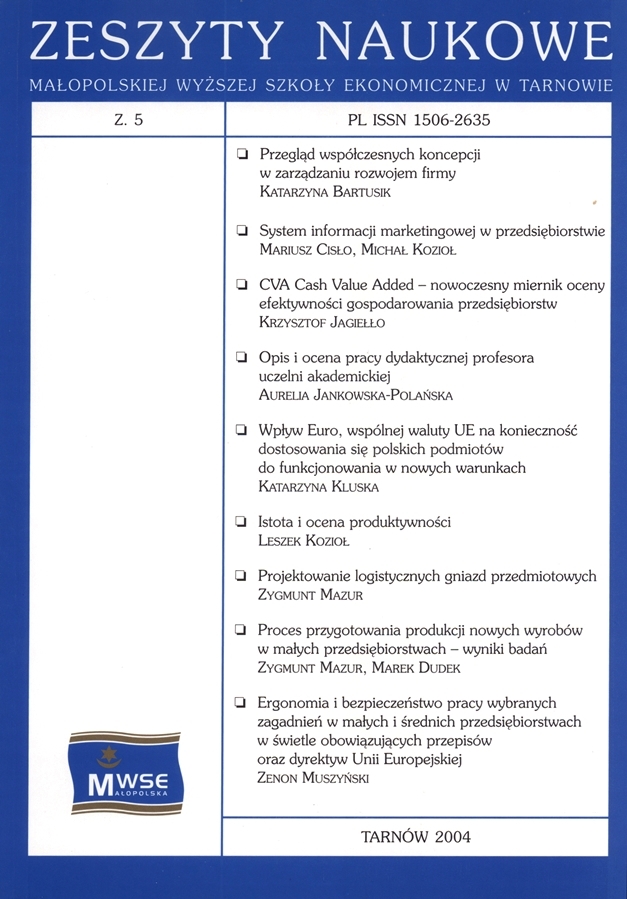Abstract
The paper presents some ideas, showing that the methods of fuzzy sets may be effective in simulation studies of the economic systems dynamics. Fuzzy, by nature, results of such simulation studies are characterized as multidimensional and providing a wide range of information about the studied process. Classical methods of making analysis, which are mainly based on transforming the description of reality in terms of probabilistic systems, are not adjusted to exploration of potential experimental capacities connected with the use of the fuzzy sets, especially in the situation when the studying of the system dynamics is carried out not only with reference to the real system, but also along with the process of changes brought about in the sphere of a possibilities evaluation of real appearance of a picture of that dynamics. In case of studying the dynamics of economic systems, using the model of a system dynamics along with the fuzzy-collective modification, the concept of verifying feedback may refer to the management process. In the course of that process a loop verifying feedback can be placed. Simulative studying of that loop, from the point of view of the system engineering, should lead to conclusions concerning the quality of the management systems. Stating the relationship between the process of management and the state of the executive system makes it possible to formulate general rules of the theory of the system capacity to function. This theory presents a proposition of a content-related interpretation of the fuzzy results of the simulation studies with the fuzzy-collective modification in the study of the economic systems dynamics.
References
Byars L.L., Rue L.W. (1991), Human Resource Management, Homewood, Boston 1991.
View in Google Scholar
Chase R.B., Aquilano N.J. (1985), Production and Operations Management: A Life Cycle Approach, 4th ed., Homewood 1985.
View in Google Scholar
Drakopoulos A.J. (1995), Probabilities, possibilities and fuzzy sets, “Fuzzy Sets and Systems”, vol. 75, p. 1-15.
View in Google Scholar
Forrester J.W. (1975), System Dynamics - Future Opportunities, Studies in the Management Sciences, vol. 14 - System Dynamics, North-Holland Publishing Comp. 1975.
View in Google Scholar
Parkin M. (1990), Economics, Addison-Wesley Publishing Comp, 1990.
View in Google Scholar
Stoner J.A.F., Wankel Ch. (1990), Kierowanie, PWE, Warszawa 1996.
View in Google Scholar
Tessem B., Davidson P.J. (1994), Fuzzy system dynamics: an approach to vague and qualitative variables in simulation, “System Dynamics Review”, vol 10, no. 1, p 49-66.
View in Google Scholar
Urban W. ( 1992), Możliwości wykorzystania zbiorów rozmytych w analizie funkcjonowania systemów społeczno-ekonomicznych, Zeszyty Naukowe AE Nr 392, Kraków 1992.
View in Google Scholar
Urban W., Wołoszyn J. (1994), Eksperymentalny system przetwarzania danych rozmytych, Zeszyty Naukowe AE Nr 421, Kraków 1994.
View in Google Scholar
Zadeh L.A. (1965), Fuzzy sets, “Information and Control”, vol. 8, p. 338-353.
View in Google Scholar
© Copyright by Małopolska School of Economics in Tarnów. The articles are available under the Creative Commons Attribution NonCommercial-NoDerivatives 4.0 International License


